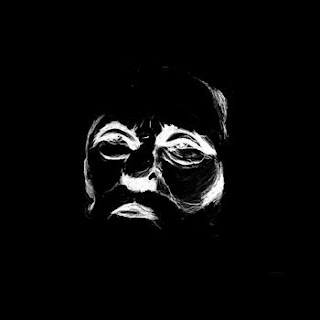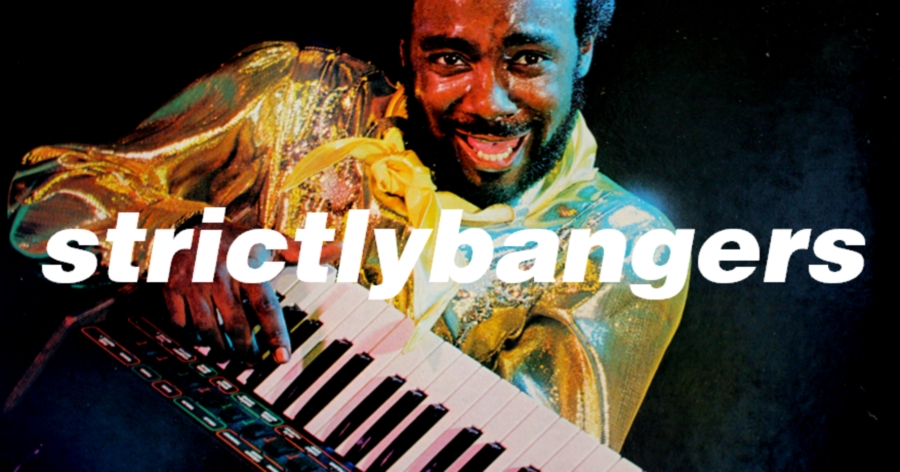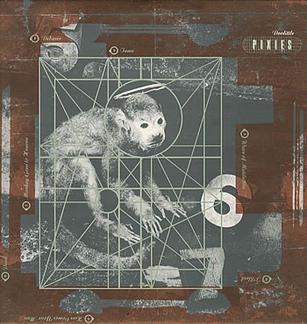 Isn't it incredible, after all these years, that dudes are still finding something original to do with acoustic guitars? There are, after all, only so many chords and so many melodies...and yet every year there seems to be a band who comes along and rewrites the formula of what a folk song should be. 2009's best candidate so far is Horse Feathers, a duo from Portland who walk the invisible line between faintly nostalgic and groundbreaking. The songwriting, to be honest, is unsurprising - nothing you haven't heard on a Nick Drake or Iron & Wine album. And that's fine, because the genius of Horse Feathers is in the arrangements. An almost complete lack of percussion lets Aaron Copland strings swell and spill over stuttering fingerpicks, a kind of musical naked swagger. It's Appalachian-rustic that insists on being timeless, and its gorgeous.
Isn't it incredible, after all these years, that dudes are still finding something original to do with acoustic guitars? There are, after all, only so many chords and so many melodies...and yet every year there seems to be a band who comes along and rewrites the formula of what a folk song should be. 2009's best candidate so far is Horse Feathers, a duo from Portland who walk the invisible line between faintly nostalgic and groundbreaking. The songwriting, to be honest, is unsurprising - nothing you haven't heard on a Nick Drake or Iron & Wine album. And that's fine, because the genius of Horse Feathers is in the arrangements. An almost complete lack of percussion lets Aaron Copland strings swell and spill over stuttering fingerpicks, a kind of musical naked swagger. It's Appalachian-rustic that insists on being timeless, and its gorgeous.DOWNLOAD
 Here's the crazy thing: there's no way you or I should know about The Middle East. They were an ultra obscure band from Queensland, Australia that broke up a week after this album was made last April, and they have little more than an incomplete Myspace page left to prove they ever existed. Miraculously someone somewhere dug this album up and off it shot through the internet, exploding all over the blogosphere like a brilliant post-rock firework. References have been made to Sigur Ros, Mogwai, and Arcade Fire, but I find them pretty hard to pin down...all I know is that hearing the power of the slow-build chorus to "Blood" for the first time is yet another victory for the internet
Here's the crazy thing: there's no way you or I should know about The Middle East. They were an ultra obscure band from Queensland, Australia that broke up a week after this album was made last April, and they have little more than an incomplete Myspace page left to prove they ever existed. Miraculously someone somewhere dug this album up and off it shot through the internet, exploding all over the blogosphere like a brilliant post-rock firework. References have been made to Sigur Ros, Mogwai, and Arcade Fire, but I find them pretty hard to pin down...all I know is that hearing the power of the slow-build chorus to "Blood" for the first time is yet another victory for the internet
 Orion (pronounced OR-ee-un, not o-RY-un), the place that Frontier Ruckus calls home, is a small farm town just outside the reach of the urban decay of Detroit. While the hometown of most bands these days is inconsequential, Orion and the impending death of the city that supports it explains the totally unsentimental, fierce folk that Frontier Ruckus creates. The first thing you'll notice about FR is lead singer Matt Milia's voice - like Jeff Mangum from Neutral Milk Hotel, it creaks and quivers and pushes. It's a love/hate thing for sure, but for me it's got that kind of perfect imperfection I fiend for in this age of the vocoder. The songs on Orion Songbook are songs of endings - of relationships, of communities, and of identities - both for better and worse. More than the story of any specific place, The Orion Songbook is an exploration of our new fragile interconnectedness - urban and rural, past and future - and in that, these stunningly original and honest tracks crafted out of banjos, saws and fiddles are the hymns of now.
Orion (pronounced OR-ee-un, not o-RY-un), the place that Frontier Ruckus calls home, is a small farm town just outside the reach of the urban decay of Detroit. While the hometown of most bands these days is inconsequential, Orion and the impending death of the city that supports it explains the totally unsentimental, fierce folk that Frontier Ruckus creates. The first thing you'll notice about FR is lead singer Matt Milia's voice - like Jeff Mangum from Neutral Milk Hotel, it creaks and quivers and pushes. It's a love/hate thing for sure, but for me it's got that kind of perfect imperfection I fiend for in this age of the vocoder. The songs on Orion Songbook are songs of endings - of relationships, of communities, and of identities - both for better and worse. More than the story of any specific place, The Orion Songbook is an exploration of our new fragile interconnectedness - urban and rural, past and future - and in that, these stunningly original and honest tracks crafted out of banjos, saws and fiddles are the hymns of now.DOWNLOAD







